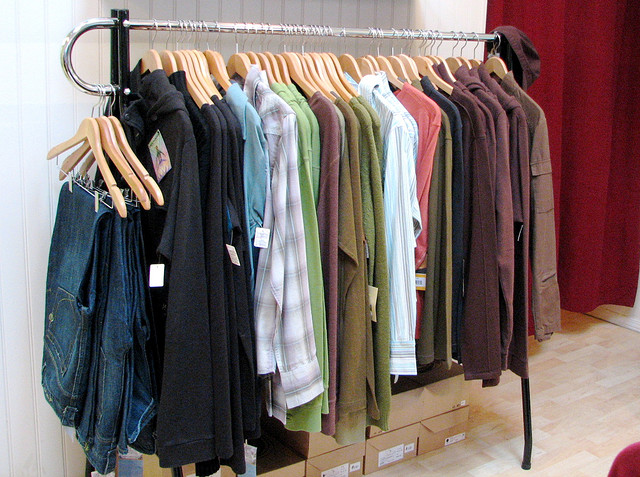These days, consumers are taking an increasing interest in the ethical practices of where they buy from and what they buy, with surveys revealing that over 71% of customers consider the environment when they shop. If you are a curious consumer, eager to find out more about how you can play your part in helping the environment as you shop, the following areas are a great place to start.
Dress Consciously
Today’s retail market has become saturated with ‘fast fashion’ – a philosophy of quick manufacturing at an affordable price which is likely to result in consumers purchasing poor quality, ill-fitting clothing that is unlikely to last in their wardrobes. Further to this, ‘fast fashion’ is criticised for its shoddy workmanship, contribution to pollution and the role it plays in poor working conditions in developing countries.
Reports suggest that we only wear 20% of our clothes 80% of the time so it might be time to donate the items you will never wear again to charity shops and practice the approach of investment buying by spending more on higher quality items but less frequently.
As well as this, you can be sustainable with your clothes by repurposing old favourites to suit the season you’re in. A tailor can turn your old jeans into shorts and long skirts into shorter skirts for a fraction of the price of buying a new wardrobe each season.
Shop Consciously
The popularity of shopping locally and supporting small businesses within local communities is on the rise, with 55% of consumers now choosing to shop at their high-street stores over larger retailers in a bid to bolster their local economies.
What’s more, shopping locally is also the ethical choice for these consumers who are considerably reducing their carbon footprint through buying seasonal produce which can be transported to the store in a more eco-friendly manner and is contained in less packaging.
Further to this, consumers are able to establish personal connections with local businesses, with many shoppers knowing the staff of their local stores by name and vice versa. This comes with its own perks as more often than not, shoppers are awarded for this kind of loyalty through discounts and a better quality of service.
Drink Consciously
One of the biggest eco-offending products of our generation is bottled water. Bottles need to be manufactured and shipped around the world resulting in a negative carbon footprint due to the amount of fuel needed to carry this out.
Plastic isn’t just bad for the environment – it isn’t good for your own personal health, either. Although you may think you are being sustainable by reusing plastic bottles, this can in fact be detrimental to your health as multiple use can lead to bacterial growth.
Further to this, a huge premium exists on bottled water, with approximately 25% of bottled water sourced from none other than…the tap. There is no evidence that bottled water is better for you and with tap water sourced mostly from surface water and subject to stringent treatment standards, it is certainly the most cost-effective option and perhaps the most health-effective too.
